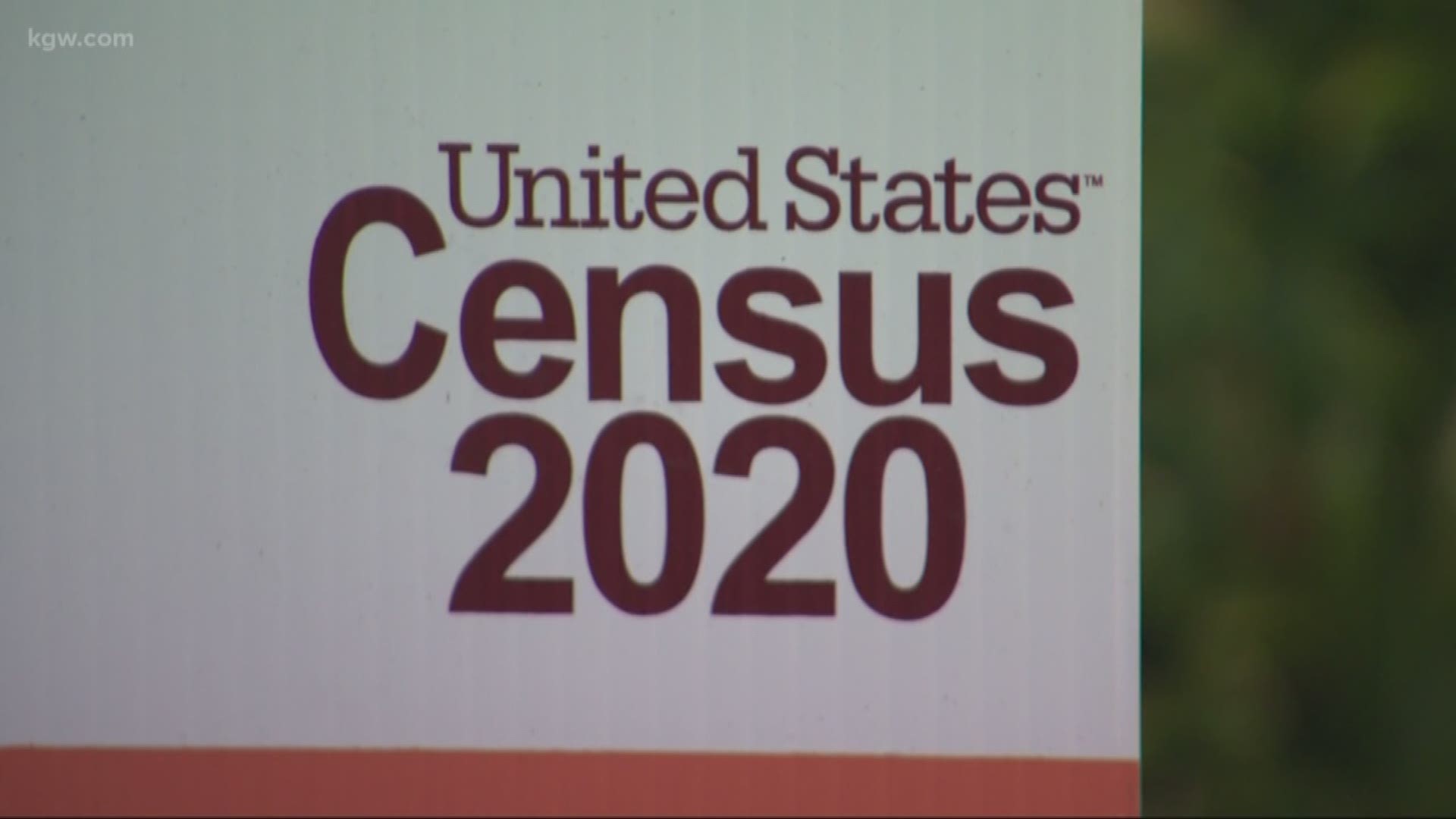PORTLAND, Ore. — Results of the 2020 census will dictate how billions of dollars in federal money are spent.
It could determine whether we lose or gain a congressperson, how much states receive for federal programs like Supplemental Nutrition Assistance Program (SNAP), Medicaid and Head Start, the amount of money allocated for transportation and infrastructure, and so much more.
"This data is used for planning different routes to speed emergency services to homes, to get goods and services to markets and, of course, planning for transportation and highway and housing needs," said Marc Czornij, partnership team lead for Oregon and Idaho. "In terms of that data, you step outside and so much around is influenced by census data - kind of quietly but it's really true."
In mid-March you'll start getting official U.S. Census Bureau mail with directions on how to respond.
This census you can respond online, over the phone or by mail with a paper questionnaire. It should only take about 10 minutes to fill out, Czornij said.
Here is a more specific timeline:
- March 12-20: first invitation to respond to questionnaire online or by phone. Some households in rural and remote parts of the state will receive paper questionnaire.
- March 16-24: you will receive a reminder letter if you haven't filled it out online.
- March 26-April 3: reminder postcards will be sent to households that haven't responded yet.
- April 8-16: reminder postcards will be sent with paper questionnaires for households that haven't responded.
- April 20-27: a final reminder for households that haven't responded.
- Mid-May: if households still haven't responded, census takers will start making in-person visits.
One of the questions that will be asked is: How many people were living or staying in this house, apartment or mobile home on April 1, 2020?
If you're filling the census out for your household, you should count everyone who is living under your roof as of April 1. Be sure to count roommates, babies, young kids and any renters. Those are groups often missed.
The next question essentially double checks you didn't miss anyone.
Then, the questionnaire asks about home ownership and renting; specifically if you or someone living there owns the house, apartment or mobile home with a mortgage or loan, if it's rented, or occupied without payment.
Then it asks for your phone number, name, birthday, sex, race and ethnicity. The questionnaire goes on to ask about each person in the house.
You can view the questions asked on the bureau's website, read tips on how to respond and explanations on why the Census Bureau asks specific questions.
A citizenship question will not be asked on the 2020 Census, nor will any prompts for your bank account information or Social Security Number.
The Census Bureau wants to make sure every one is counted - but only once. The bureau has a sample copy of the paper questionnaire you can check out on their website.
Their main message: this information is important to your community. The questionnaire is easy to fill out and your information is safe and protected.
"Census data is protected by Title 13 of United States Code so that means the Census Bureau cannot share someone's personally identifiable information - this individual level data - with another bureau, agency, law enforcement, ICE. It's extremely important to the bureau and all of us that we protect this data," Czornij said.
Pulling off this massive undertaking takes thousand of workers and the Census Bureau is looking for a lot more. Czornij told KGW that they need 4,000 people to apply in the Portland area alone.
Recruiting events from Portland down to Salem are happening over the weekend. If you're interested in working as a census taker or supervisor, you can check out one of the Census Bureau's "Gig of the Decade" hiring events. They're taking place at Multnomah County Libraries on Saturday, Feb. 1, from 1-5 p.m. In Clackamas County, they will be Thursday, Jan. 30, from 2 to 6 p.m. and Friday, Jan. 31, from 11 a.m. to 6 p.m. at the Oregon City Library.

